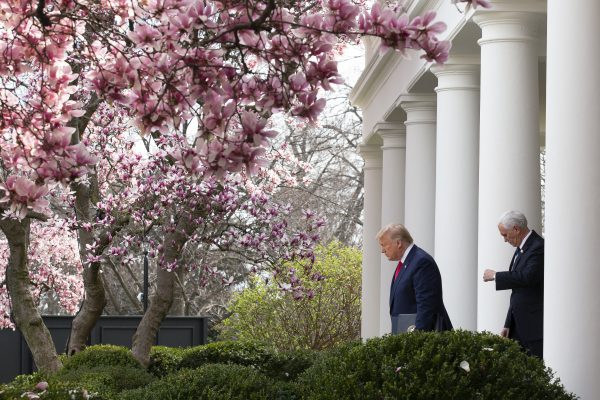Divergent state responses should not surprise. Some states are far more effective than others in pursuit of their specific socio-economic priorities — whether that be health and education or techno-industrial competitiveness.
The concept of infrastructural power explains the basic domestic capabilities that distinguish the modern state. This refers to the state’s ability to reach into society and mobilise resources with the consent of its citizens — such as money for welfare, talent for innovation, or warriors and materials for warfare.
All modern states are endowed with some degree of infrastructural power. But their capacity to act in different policy arenas is by no means similar. For example, in recent decades, US prowess in radical innovation to preserve military superiority contrasts with its dismal track record in providing for the nation’s health. By contrast, Australia has excelled in health provision, but scored poorly in promoting the nation’s techno-industrial transformation.
By the same token, some countries are faring better than others in managing the three related challenges of the present pandemic. These are controlling the spread of the virus, providing economic resources to support livelihoods and maintain social cohesion during the lockdown, and mobilising the domestic supply of scarce personal protective equipment to avoid the dire shortages suffered elsewhere. While some countries appear to be excelling in meeting one or more of these challenges, others are struggling on all three fronts. Consider that Taiwan, although next door to mainland China, has managed to drastically curtail the viral spread and avert economic and social upheaval. By contrast, and in spite of its massive wealth and technological sophistication, the United States has so far failed to meet the pandemic threat.
To make sense of such different outcomes, we must start with two well-established sources of state capacity: extractive and transformative. Extractive capacity entails the state’s ability to extract and distribute resources. While important in times of relative economic stability, this capacity becomes critical in times of crisis — whether to stem rising unemployment and bankruptcies, or to maintain confidence and prevent panic.
Transformative capacity refers to the ability of governing authorities to foster industry and innovation in a way that promotes a country’s shift up the industrial-technology ladder of development. In a pandemic, the dire shortages of everything from masks to ventilators in many jurisdictions make this transformative capacity in the economic arena a matter of life and death.
Transformative and extractive capacity has significant effects across a variety of national settings. But current developments in the health arena invite us to coin a new term — salutary capacity — to encompass the range of responses that are currently observable cross-nationally.
By salutary capacity, we refer to the state’s ability to protect and sustain the physical health of its people. Salutary capacity is most evident in a state’s ability to correct the course of a health threat — in this case, a viral pandemic. With reference to COVID-19, specific measures of salutary capacity include testing, contact tracing, monitoring and quarantining regimes, and the mobilisation of health infrastructure, personnel and medical equipment.
It must be emphasised that salutary capacity does not stand on its own. It depends on the state’s prior extractive and transformative capacities. The state’s capacity to extract, mobilise and distribute resources is essential to controlling the viral spread. Similarly, salutary capacity relies to some degree on the extent and sophistication of the nation’s techno-industrial base. The state’s ability to mobilise economic actors — its transformative capacity — will have significant bearing on whether it is faced with desperate shortages or greater self-sufficiency in medical supplies.
We call attention to these three strands of state capacity — extractive, transformative and salutary — in order to understand the divergent state responses that are bound to shape different outcomes for lives and livelihoods. Still, it is premature to draw firm conclusions about the precise outcomes these forces will generate. Factors such as leadership, historically-formed priorities, and social cohesion all enable or constrain the exercise of state capacity.
State capacity always matters, but during this pandemic it has become a matter of life and death. Understanding the sources of that capacity, including how and why it varies across and within national jurisdictions, should now be a central focus of scholars and policymakers alike.
Elizabeth Thurbon is Scientia Fellow and Associate Professor in International Relations in the School of Social Sciences at The University of New South Wales (UNSW), Sydney.
Linda Weiss is a Fellow of the Academy of Social Sciences, Professor Emeritus in Government and International Relations at The University of Sydney, and Honorary Professor of Political Science at Aarhus, Denmark.
*As frequent co-authors we rotate first authorship. This work is supported by the Laboratory Program for Korean Studies through the Ministry of Education of the Republic of Korea and the Korean Studies Promotion Service of the Academy of Korean Studies (AKS-2018-LAB-1250001.)
This article is part of an EAF special feature series on the novel coronavirus crisis and its impact.

